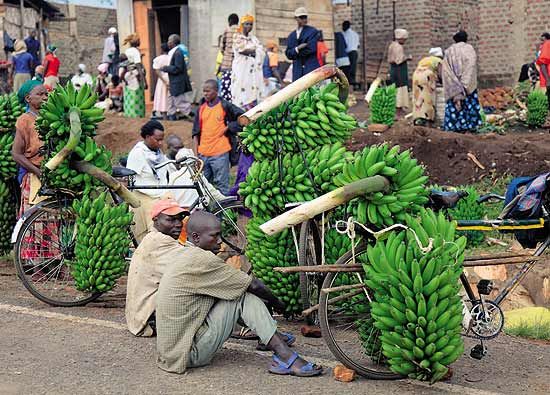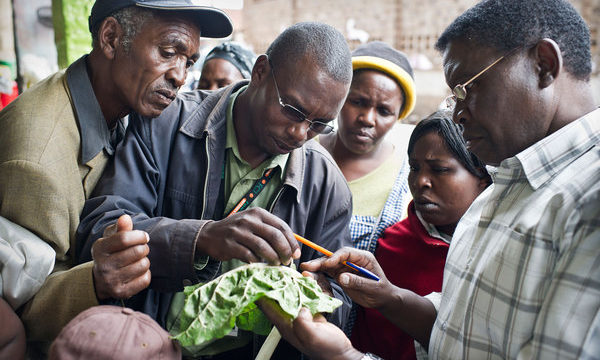In Egypt a new ‘banana compost’ has been trialled with positive results. The compost increases crop yields whilst reducing water and fertiliser use. This new cultural method of crop management could soon be commercially produced to help Egyptian farmers
Banana plants only fruit once in their lifetime and are normally burned by farmers afterwards to make space for new banana plants. This is done on a large scale with over 52,000 acres of Egypt used to farm banana plants.
Recently scientists from Egypt’s National Research Centre have, instead of burning the banana plants, mixed them with manure and microorganisms such as yeast. This residue, called banana compost, was then applied to banana plants over 4 successive growing seasons.
The results were remarkable, with increased crop yields and decreased water and fertiliser use. Nesreen H. Abou-Baker, who was awarded a PhD last month for this research, said:
“Using banana compost we get greater efficiency of nutrients in soil compared with other fertilisers, good aeration associated with the relatively low application of irrigation water, and decreased nutrient losses by leaching,”.
The use of banana compost also reduced the use of mineral fertilisers (fertilisers that have been synthetically produced or mined). This would decrease the overall cost in farming and led to a reduction in the concentration of heavy metals in the bananas compared to the mineral fertilisers.
The banana compost could now be made on a commercial scale and sold to local farmers. It might even become an export from Egypt to other nearby countries, reducing their dependence on mineral fertilisers too.
Read the full story on the SciDev Net website.
Related News & Blogs
A new AI-powered app scans banana crops for early signs of disease
By Emma Bryce. Reblogged from Anthropocene. The banana is the world’s most popular fruit: we consume 100 billion of them a year. And yet, their future is threatened by a spate of diseases that are ravaging crops worldwide. Now, researchers have develop…
2 September 2019



